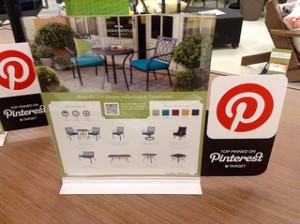I’ve written before here on Corporate Eye about the need to focus your brand strategy, particularly these days when the economy and world around us are tenuous and consumers are looking for a sense of security. Rather than trying to be all things to all people, the smart brands are contracting and focusing their efforts on their unique value propositions more than ever.
With focus comes a little thing called niche, and it’s hotter than ever. A niche brand is one that is extremely focused and often fills a gap that larger, broader brands don’t view as a threat or big enough opportunity to waste their time on. A niche brand is likely to appeal to a highly targeted audience, which means two things:
- The potential consumer audience is much smaller.
- The economies of scale are greater.
In other words, naturally a niche brand is going to appeal to a smaller audience than a broad brand does. However, within that concentrated target audience who wants and needs the niche brand, sales penetration should be higher, repeat purchases should be higher, and brand loyalty should be even higher.
The marketing world is all about niches these days. The economy isn’t the only reason for this shift though. The social Web also played a part in redefining brand strategy by providing a way for people to connect with others about the topics, products, and so on that matter to them most. While there are millions of Web sites and blogs dedicated to broad topics, there are fewer devoted to specific niches, benefiting from long tail search engine optimization, and building relationships with consumers who are likely to have already expressed an interest in the brand’s message and promise based on their wants and needs.
History also dictates that brands will broaden and then contract, broaden and then retract, and so on — over and over again. That’s because history is cyclical. Think about the mergers and acquisitions of the 1990s, creating giant companies that found it nearly impossible to get out of their own way in the 21st century and therefore, cannot get anything done. Unfortunately, there are far too many corporations that still fit that definition, but many have become victims of their own size and been forced to sell off businesses, declare bankruptcy, accept government bailouts, etc.
The bottom line is that the hot trend right now is niche branding and marketing. Are you prepared to refocus your brand? Have you already done so? Leave a comment and share your story.
Susan Gunelius is the author of 10 marketing, social media, branding, copywriting, and technology books, and she is President & CEO of KeySplash Creative, Inc., a marketing communications company. She also owns Women on Business, an award-wining blog for business women. She is a featured columnist for Entrepreneur.com and Forbes.com, and her marketing-related articles have appeared on websites such as MSNBC.com, BusinessWeek.com, TodayShow.com, and more.
She has over 20 years of experience in the marketing field having spent the first decade of her career directing marketing programs for some of the largest companies in the world, including divisions of AT&T and HSBC. Today, her clients include large and small companies around the world and household brands like Citigroup, Cox Communications, Intuit, and more. Susan is frequently interviewed about marketing and branding by television, radio, print, and online media organizations, and she speaks about these topics at events around the world. You can connect with her on Twitter, Facebook, LinkedIn, or Google+.



Absolutely spot on. Generic brands no longer work. Lake a look at Laneve, a new brand for wool. Wool is niche enough (2% of world fibre production). New Zealand wool is only a fraction of that. Laneve takes just a tiny fraction of fibre and brands it as sustainable and traceable to each farm… This allows emotional stories that a very tarheted audience buys into.. Generic marketing is dead.
http://www.squidoo.com/laneve